Are we doing enough to cut pollution?
- Published
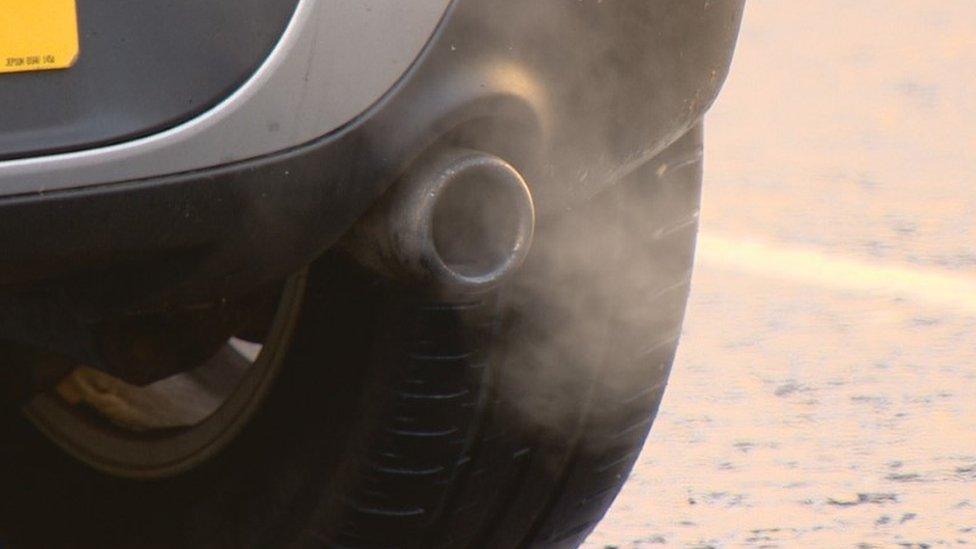
Car exhaust fumes contribute to air pollution
We are all used to the sight of cars and other vehicles on our roads - they are a vital part of everyday life.
But at what cost?
The fumes that come out of vehicle exhaust pipes play a big role in the rise of air pollution - a problem linked with thousands of deaths in Scotland and across the UK each year.

Dirty streets?
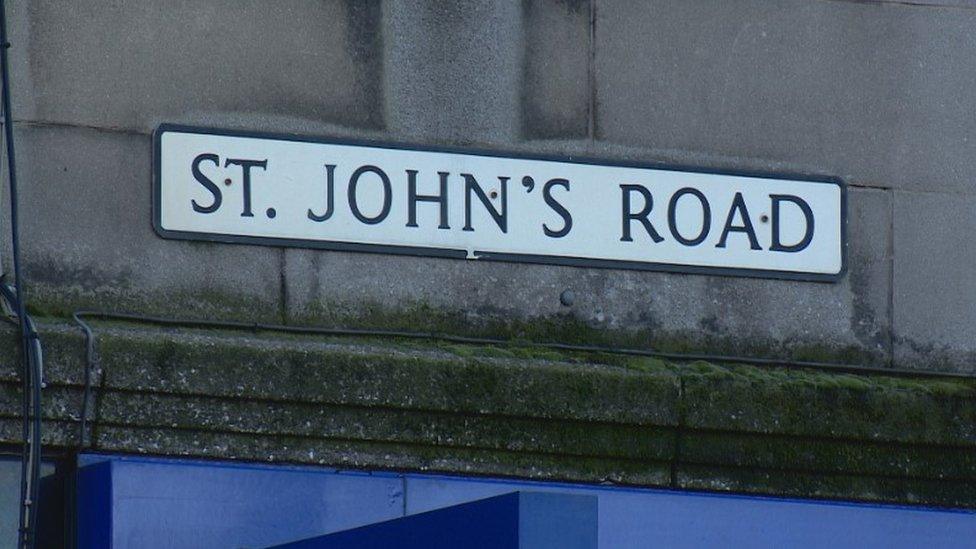
Friends of the Earth claim St John's Road in Edinburgh is Scotland's most polluted street
St John's Road in Edinburgh is like many streets throughout the country. People live here and it's home to many businesses.
It's also attracted the unwanted title of Scotland's most polluted street.
So what do those who live and work here make of that?
Lucy's Cafe is a popular spot for locals, and there's a mixed reaction here from customers.
Working behind the counter is Lucy herself, who tells me: "When I was quitting smoking, I was going for check-ups every week and because of the air pollution, I never got down to zero."
Another customer adds: "I go outside for a bit of fresh air, but you don't get fresh air, not with all the vans and lorries passing."
But not everyone is convinced.
Andy Atkinson, a bronchitis sufferer, says: "I blame the little machines not always giving the proper recording.
"You just need one bus to come along, a plume of black smoke and it probably gives false readings."

How bad is it?
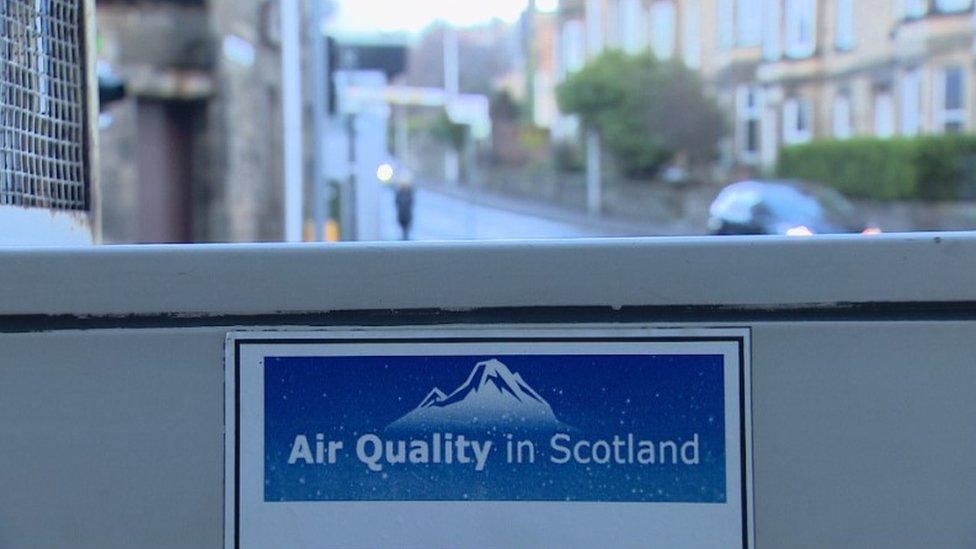
The annual average European legal limit for the pollutant nitrogen dioxide, which is linked to asthma and other respiratory problems, is set at 40 microgrammes per cubic metre, external.
But new research from Friends of the Earth Scotland, collected from official monitoring stations, external, says it was breached on streets across the country in 2015.
Here's the environmental group's list of shame:
St. John's Road Edinburgh: 65 microgrammes
Hope Street Glasgow: 60 microgrammes
Seagate, Dundee: 50 microgrammes
Atholl Street, Perth: 48 microgrammes
Lochee Road, Dundee: 48 microgrammes
Union Street, Aberdeen: 46 microgrammes
Queensferry Road, Edinburgh: 41 microgrammes
Wellington Road, Aberdeen: 41 microgrammes
Friends of the Earth Scotland also collected data on particulate matter - tiny particles which are pumped into the air by diesel vehicles.
And it said that streets in Edinburgh, Aberdeen, Perth, Glasgow, Dundee, Falkirk and Rutherglen failed to meet Scottish air quality standards.
Friends of the Earth air pollution campaigner Emilia Hanna said: "If you're breathing in air pollution day-in, day-out, you're more likely to have a stroke or heart attack.
"If you're asthmatic you might find that your symptoms are worsened."

What's being done about it?
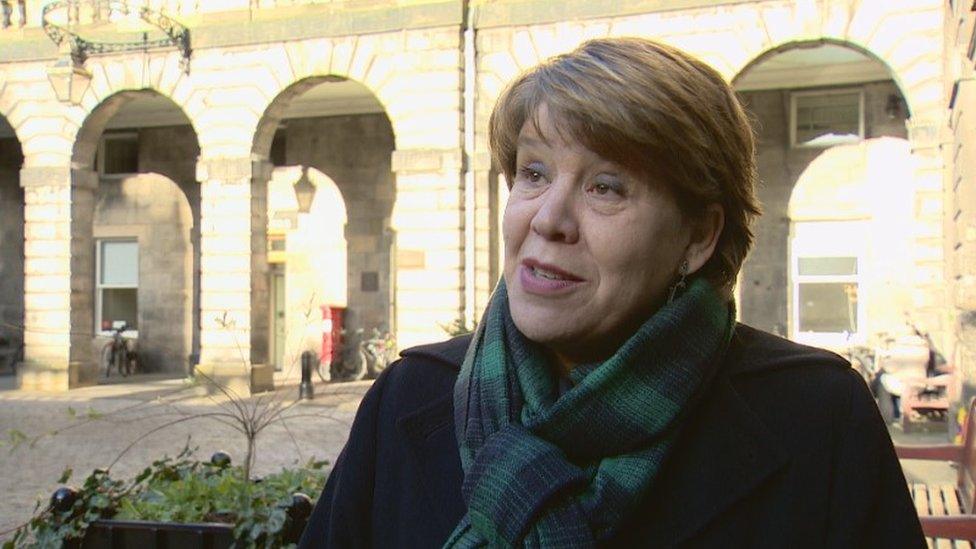
Two months ago the Scottish government set a target to make Scotland's air the best in Europe, external.
Ministers say there have been "significant reductions" in air pollutants since 1990, but recognise more needs to be done.
The government says £3m has been earmarked for councils to help them improve air quality, as well as additional funding for schemes like the Green Bus Fund.
Ministers want councils to play their part - but councils say to do that, they need more cash.
Lesley Hinds, Edinburgh City Council's transport and environment convener, said 97% of streets in the Scottish capital actually pass air quality tests, adding that the authority was working on the rest.
She said the city was also trying to make busses greener and get more people on bikes, but in a time of cuts, warned: "There's no way we can introduce a low-emissions strategy in the city with the Scottish government unless we can get extra resources."

Pressure mounting
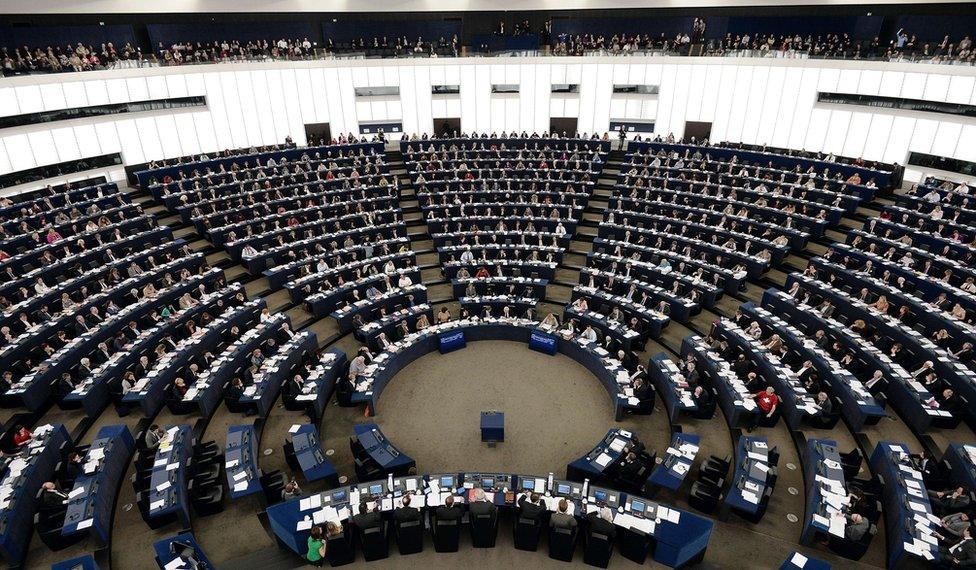
The Scottish government is facing the threat of court action if it fails to tackle illegal levels of air pollution in the country's biggest cities, from environmental law organisation ClientEarth.
It has already won a landmark ruling against the Westminster government, after the UK's highest court ruled must take immediate action to cut air pollution.
And there are moves afoot at European level.
The revelation the carmaker Volkswagen had emission-deceiving devices on its vehicles became an international scandal.
That prompted the European Parliament to consider imposing new car pollution limits - but a vote on the issue due to take place this week has now been postponed as politicians consider whether to make those limits even tougher.
For residents living in congested cities like Edinburgh, that means further delay.
Meanwhile, campaigners continue to argue air pollution is now at the heart of a major health crisis.